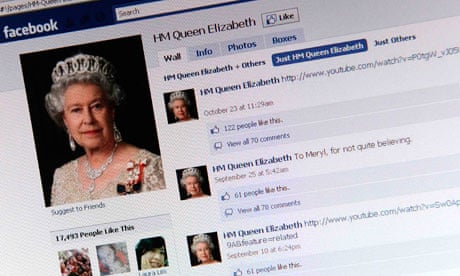Facebook is moving into the email business, or so the speculation says; we'll know for sure after their special event in San Francisco, kicking off at 6pm tonight. It would be one hell of an anticlimax if after inspiring months of speculation about its mysterious "Project Titan" – and sending out an airmail-themed event invitation – Facebook simply announced that it was redesigning its site again.
It's safe to assume that Facebook Mail is being switched on in the very near future. It's also safe to assume that the inevitable "switch it back off" petition from an extremely vocal minority will fail, as such petitions always do. In the technology columns this evening, there are going to be two main views: first, that this is a "game changer"; and secondly, that this is a "privacy nightmare".
If Facebook really is releasing a full webmail client, able to send and receive messages beyond Facebook's traditional walled garden, then it might well be a "game changer": perhaps it's an even more significant launch than Gmail (which had a rather low-key launch on 1 April 2004). In Facebook Mail, everyone's address book is already filled out, and there's no need to convince users to sign up.
It's also worth noting that Facebook's Friend Finder adverts have been particularly aggressive over the past day or so: I have a suspicion that Facebook really has kept all the email contacts uploaded using that tool over the years, as it said it might in the service's small print. Anyone who has used the importer may find that more than just their Facebook friends are waiting for them in Project Titan's address book.
Let's not forget that over the past couple of years, Facebook quietly won the decade-old instant messenger (IM) wars, at least in the English-speaking world. Windows Live Messenger and AIM, the networks of choice for Europe and the US respectively, have both added support for Facebook Chat – and for many people, it has replaced other IM networks entirely. Millions of other Facebook users who had never used IM before suddenly found, when the service was turned on, that they were receiving messages without any effort on their part.
Facebook's IM service revived the medium's popularity after the dip caused by social networks – including Facebook itself. A new Facebook Mail product could prove just as popular simply by virtue of (a) existing and (b) being the only way to send private Facebook messages. Rather than being the death of email, Project Titan could herald its resurgence.
The catch, of course, is the "privacy nightmare". Beating up on Facebook's privacy policies is a pastime beloved of the technology media; I've done it myself, writing web pages that trawl for users who have unknowingly made their phone number public, or creating games involving questionable public status updates .
All of these concerns, however, revolve around semi-public information – the messages you share with your social circle – rather than absolutely private data like your email inbox. Even Facebook's own developer programme, the source of last month's user ID leak, has strong protection for users' personal messages. Facebook has also taken some rather proactive approaches to the security of its users' accounts: it is one of only a few web services to offer one-time passwords via SMS, for use when logging in on untrusted computers. And if you access your account from somewhere unexpected – if you're going on holiday, for example – you may find that Facebook asks you to answer some extra questions about yourself just in case it's someone else who's stolen your password.
Despite the hyperbolic headlines that will inevitably follow tonight's launch, the truth is – of course – that Facebook Mail will be neither a swift revolution nor a privacy disaster. It'll just be another incremental improvement – but perhaps also a step change – in one of many social networks, and another small step forward for our online lives.
It's certainly not the death of email; but neither is it going to cause teens to suddenly start typing long-form messages instead of texting.
While those of us at the leading edge of tech (which is almost everyone reading this) are being constantly buffeted by new services and new revolutions, any change in the way the world at large communicates will take years to take effect.
How can I be so sure of that? Simple. Last week I had to send someone a fax.


